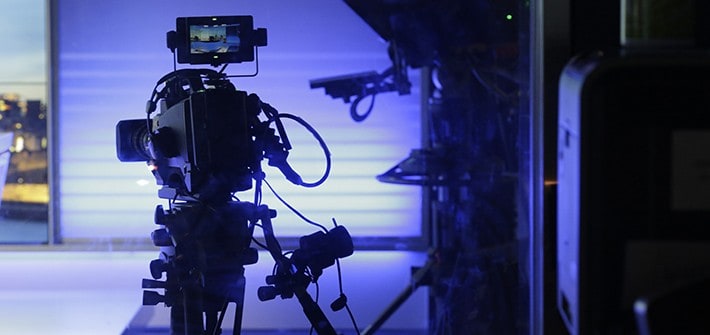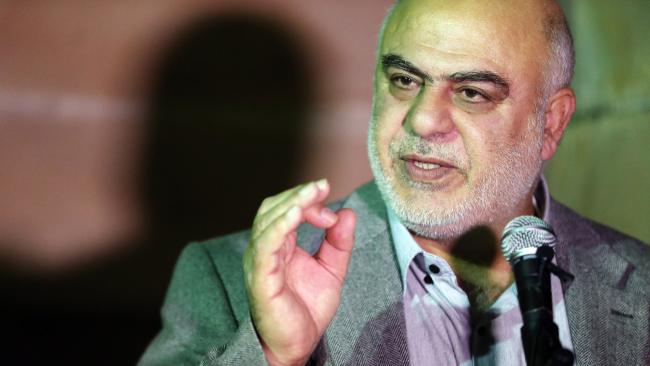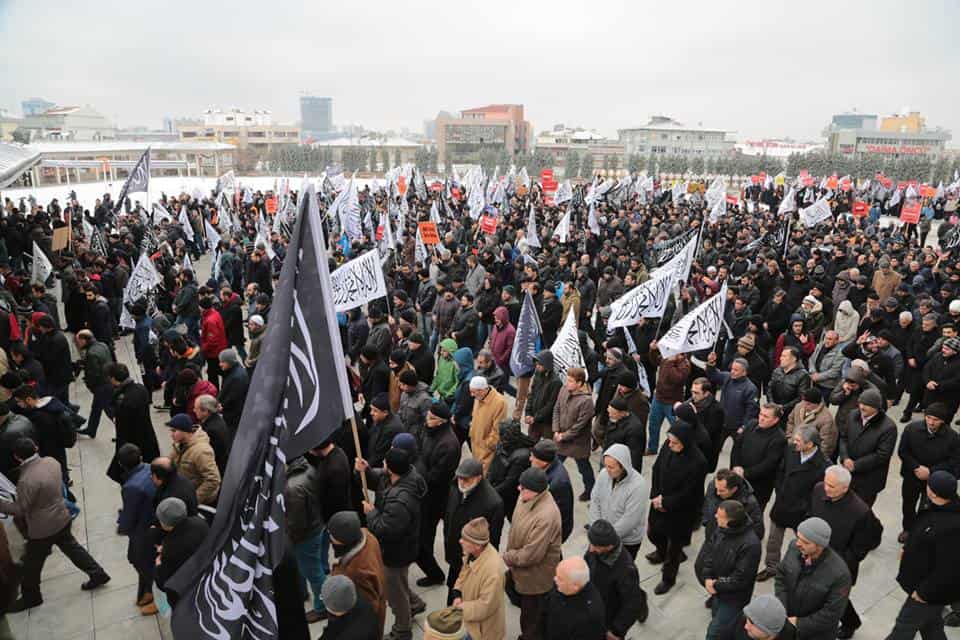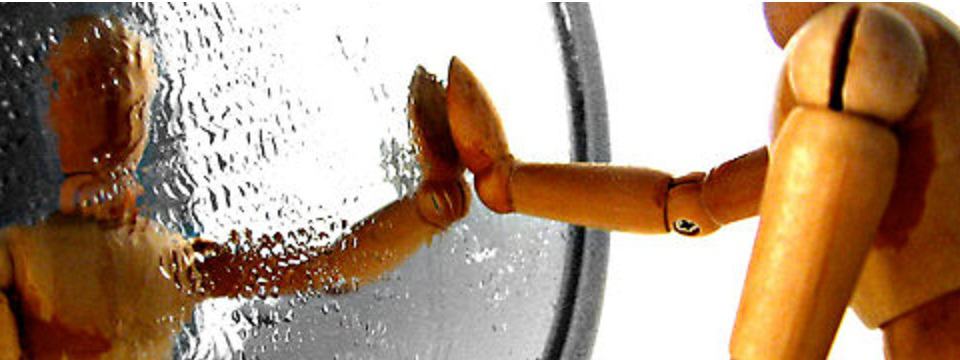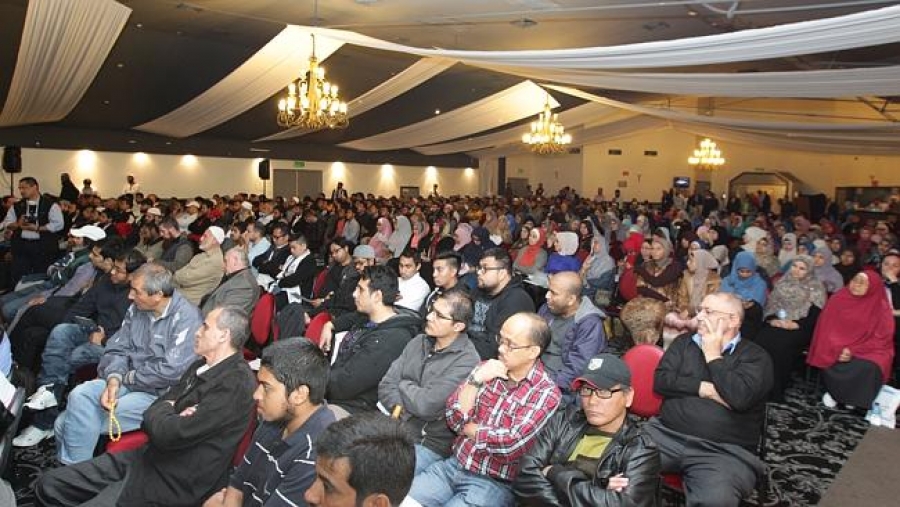What is Islam’s position on apostates? What does sharia law say about gays? Does Islam allow men to beat their wives? Does the “Koran” tell you to kill non-Muslims “wherever you find them”?
These are the kind of questions that many Muslims who appear in the media are often confronted with. Essentially, the questions revolve around aspects of Islamic law and Muslims are put on the spot to either deny or confirm them. Common responses include interpreting away some of the shari’ah rulings deemed problematic in a liberal society, denying the relevance or applicability of the shari’ah today, or reducing the scope and meaning of shari’ah to simply a personal moral guide.
I am no expert on media engagement and therefore cannot provide much advice on how to answer these questions. However, as a novice studying the Islamic sciences and also as a student studying culture in its broadest sense, including the media, I would like to share some thoughts on why, or at least how, not to answer these questions. This will then pave the way for me to discuss some of the politics behind these questions that we need to be aware of.
I, like many others, am guilty of “knowledge surfing” when it comes to Islamic studies. A haphazard conglomerate of Youtube videos, articles, blogs, lectures, debates, Facebook discussions, and self-taught books without a qualified teacher were the sources of my half-baked Islamic knowledge. Needless to say, such random knowledge gathering lacked proper structure and proper mentoring. The result of this process is not knowledge, but a superficial self-confidence that allows the layman to speak with pseudo-authority.
Then came a phase that shattered this smug self-confidence; I actually started taking Islamic classes. More regularly and on a consistent basis, I was guided through well-known classical primers with qualified teachers. Mind you, these were just basic-level courses for beginners, but just a few of them is all it took to make me realise that I had not even begun to scratch the surface of the vastness, richness, intricacies and nuances of a tradition that has been developed and maintained through the rigorous hard-work and dedication of innumerable erudite scholars of the highest caliber for over a millennium!
And some of my teachers who have spent years studying the Islamic sciences are of the most humble I have seen about their own knowledge. When asked a question, they would not rush to answer. They would pause to think, refer back to their books or even ask their teachers before finally giving an answer, even if they already knew it. It only speaks to the gravity of the task of conveying sacred knowledge to others.
Now contrast that with what Muslims have to deal with in the media. We are asked to provide commentaries on Qur’anic verses, explain ahadith, and confirm or deny legal rulings – all in 30 seconds! And guess what? We often do!
We actually provide our half-baked commentaries (often tailored to please the questioner) on some of the most intricate and sensitive of issues to an audience who has an almost non-existent Islamic knowledge – some even with hostility towards Islam – in a matter of seconds or minutes! The result? Usually disaster. Often, only sound bites that make good press and reinforce negative stereotypes are cherry picked and splashed across front pages. And no matter how convincing our answers are (and how can they be with not even a moment to gather one’s thoughts?), we never win.
Trying to explain Qur’anic verses, Prophetic ahadith, or aspects of the Islamic shari’ah on radio or television is often a problematic exercise due to three main reasons:
Firstly, some of us appearing on the media are not qualified to give opinions on sensitive topics related to fiqh, tafseer, hadith etc. It can be said that under desirable conditions that we only convey what we know. But I do not believe even that is possible in the mad rush of a media interview where we often try to convey the nuances and contexts of verses, rulings and so on. More meaning is lost and befuddled than is conveyed when we try to rush through these issues under pressure to make Islam palatable to a society constantly fed with Islamophobic narratives. Consider, for example, common answers like “Jihad is inner struggle”, “Islam prohibits terrorism”, “beating your wife is last resort”, etc. None of these responses deals with the topic at hand adequately, nor do they alleviate any of the social anxieties and realities that underpin the conversation about Islam.
Secondly, even if we had knowledgeable Muslims appearing on TV, the audience that they would be speaking to has little to no Islamic knowledge. To do justice to the topics raised, one needs to give the listener a fair bit of background information and context, which of course the media has no time for. I am not saying that we need to put the entire society through Islamic classes for them to understand Islam, (as great an idea as that might be), but it is perhaps not wise to make issues that have been made thoroughly controversial as the very entry point to the discussion on Islam for our general audience. If our sincerest intentions are da’wah, elaborating the complexities of a controversial fiqhi ruling on national TV is surely not the first point of action.
Thirdly, even if the audience had some Islamic knowledge, the questions are almost never asked seeking a better understanding of Islam and Muslims. Rather, we often find that they are framed in such a way that, regardless of what we say, we can only be understood within the narrow and prejudiced parameters defined by an Islamophobic anxiety that so deeply permeates our society, especially through the media. In other words, the media, generally speaking, is not interested in understanding Islam. Most often, it is interested in portraying Islam and Muslims in a way that gets hits. Unfortunately, in today’s political climate, only an Islamophobic story makes for good business.
This then begs the question as to why so many of us still feel the urge to respond. The answer, in fact, lies not so much within our attitudes towards the media, as much as it lies within the politics of marginalisation that play out in “liberal” societies.
One of the ways by which this works is that mainstream society controls the resources of representation, primarily – the media. “Minority” communities are then sometimes afforded limited access to such resources to make their voices heard. Given the obsession of the media with (and the anxiety of the society about) all things Muslim, sometimes, some members of the Muslim community would be invited to speak for the community, so that an “authentic” voice can be represented to the public. As we all know by now, media representations of Muslims are quite awful to say the least. Therefore, when afforded the opportunity, we ambitiously aim to undo all the reputational damage done to Islam and Muslims by the media (in 30 seconds!), using the media itself as a tool! No wonder then that we see the same old faces coming on the media to repeat the same old clichéd public apologies and canned condemnations every time we are given a chance.
And because only a handful of voices from the “minority” Muslim community are given the chance to be heard, then those voices are heard by the majority culture as speaking for the rest of the community, thereby reinforcing the perceived secondariness of Muslims in society. When a “terrorist” attack happens, all Muslims are to blame. When a Muslim comes on TV to apologise and condemn, once again, it is perceived to be on behalf of the entire community. While giving a false sense of inclusion, it only legitimates further exclusionary practices such as by defining for Muslims what kind of narratives to adopt, or even by subtly dictating to the Muslim community acceptable and unacceptable versions of their faith. And those of us who fall prey to such machinations forever remain caught up in a futile politics of representation.
Such politics does not allow for a genuine, sincere and intellectual debate about Islam. It merely uses Muslims as a pawn in the national security chessboard. And the sacrifice of our dignity could not be more obvious, while the consequences are self-defeating. The more we adopt the standards of mainstream society seeking acceptance, the more we only see ourselves as a marginalised “minority”, because this is precisely how “cultural hegemony” works. When we constantly try to justify Islam using liberal standards – when the contradictions between the two are so obvious – we come across as artificial and contrived. Thus we end up condemning ourselves to always being second-rate to the mainstream, in this neverending pursuit of respect.
Now, where does that leave us? Do we then not engage with the media at all? I think we still should but we really need to steer clear of the defensive and apologetic stance that some of us have taken so far. As for what the best strategies for dealing with the media and what the most critical points that we should try to hit home are, during these few minutes we are afforded, these are matters that the community as a whole needs to discuss. In this piece I have merely highlighted a few points, out of perhaps many, that warrant consideration in such discussions.
Shafiul Huq is a Melbourne-based activist. He is also a student of Classical Arabic and Cultural Studies.
![]()










